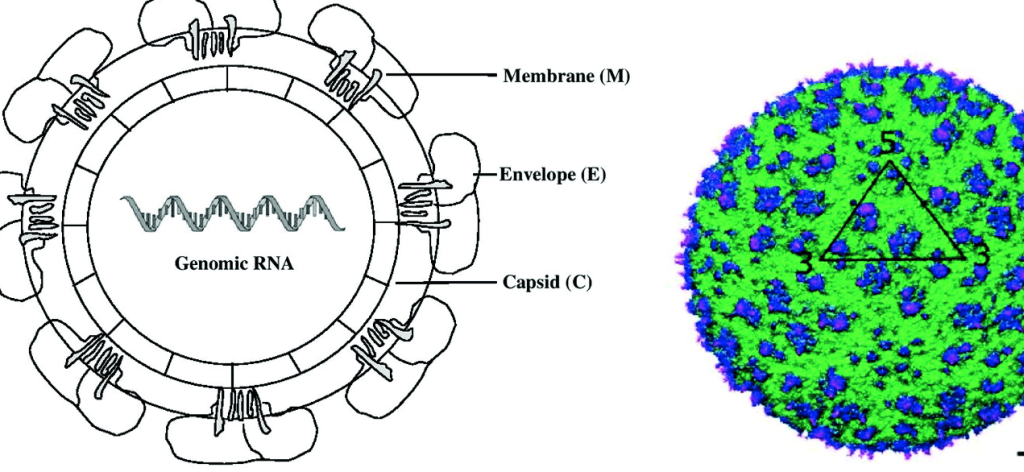Understanding Dengue Fever Symptoms: Causes and Prevention
Dengue fever, pronounced as DENG-gey, is a mosquito-borne viral infection that poses significant health risks in tropical and subtropical regions worldwide. This illness ranges from a mild fever to a severe, potentially fatal condition known as dengue hemorrhagic fever. As the disease spreads to new territories, understanding its causes, symptoms, and preventive measures is crucial for protecting yourself and your loved ones.
What is Dengue Fever?
Dengue fever is caused by the dengue virus, which is transmitted through the bite of infected Aedes mosquitoes, particularly Aedes aegypti. This mosquito species is most active during the early morning and late afternoon, making these times particularly risky for mosquito bites.
Dengue fever is prevalent in regions such as Southeast Asia, the western Pacific islands, Latin America, and Africa. However, with climate change and increased global travel, the virus is now being reported in new areas, including southern parts of the United States and Europe.
Symptoms of Dengue Fever
Dengue fever symptoms typically appear four to ten days after being bitten by an infected mosquito. For many, the infection can be asymptomatic, meaning they experience no visible symptoms. However, when symptoms do manifest, they often resemble those of the flu and include:
1. High fever: A sudden fever reaching up to 104°F (40°C) is a hallmark of dengue fever.
2. Headache: Severe headaches are commonly reported by those infected.
3. Muscle, bone, or joint pain: Often referred to as “breakbone fever” due to the intense pain it causes.
4. Nausea and vomiting: Gastrointestinal symptoms are common during the course of the illness.
5. Pain behind the eyes: A distinctive symptom that helps differentiate dengue fever from other viral infections.
6. Swollen glands: Lymph nodes may become swollen and tender.
7. Rash: A rash often develops a few days into the illness, following the onset of fever.

While most individuals recover within a week, a small percentage of cases can progress to severe dengue. This advanced form of the disease, also known as dengue hemorrhagic fever or dengue shock syndrome, can be life-threatening.
Severe Dengue Fever: A Life-Threatening Condition
Severe dengue fever occurs when the virus causes blood vessels to become damaged and leaky. Additionally, there is a significant drop in the number of platelets, which are crucial for blood clotting. These changes can lead to severe complications, including:
1. Shock: A sudden drop in blood pressure can occur, leading to shock, a life-threatening condition.
2. Internal bleeding: This may manifest as bleeding from the gums, nose, or within the digestive system, leading to blood in the urine, stools, or vomit.
3. Organ failure: Severe cases can lead to failure of vital organs, including the heart, liver, and kidneys.
4. Death: Without timely medical intervention, severe dengue fever can be fatal.
Warning signs of severe dengue usually develop within the first 24-48 hours after the initial fever subsides. These symptoms include severe abdominal pain, persistent vomiting, difficulty breathing, bleeding under the skin (which may appear as bruising), and extreme fatigue or irritability.
Preventing Dengue Fever
Currently, there is no specific antiviral treatment for dengue fever, making prevention the most effective way to combat the disease. In areas where dengue is common, or if you plan to travel to such regions, taking the following precautions can significantly reduce the risk of infection:
1. Avoid mosquito bites: Use insect repellent containing DEET, wear long-sleeved clothing, and use mosquito nets while sleeping, especially during peak mosquito activity hours.
2 Reduce mosquito habitats: Eliminate standing water around your home, as Aedes mosquitoes breed in stagnant water. This includes emptying containers, cleaning gutters, and covering water storage units.
3. Community efforts: Engage in local efforts to control the mosquito population, such as community clean-up campaigns and spraying insecticides in mosquito-prone areas.
Researchers are actively working on developing a dengue vaccine, but until a widely effective solution is available, prevention remains key.
When to See a Doctor
If you have recently traveled to a region where dengue fever is common and develop symptoms such as high fever, headache, muscle pain, or a rash, it is advisable to consult a healthcare provider. Early diagnosis can help manage the symptoms and reduce the risk of severe complications.
In the case of severe dengue symptoms, such as persistent vomiting, severe abdominal pain, or bleeding, seek emergency medical attention immediately. Severe dengue fever is a medical emergency and requires prompt treatment to prevent life-threatening complications.
Conclusion
Dengue fever is a serious health concern, particularly in tropical and subtropical regions. Understanding the causes, recognizing the symptoms, and taking preventive measures can protect you from this potentially fatal disease. Stay informed and stay safe by avoiding mosquito bites and supporting efforts to control the mosquito population in your community.

Pingback: Elon Musk's Grok AI: A New Frontier in AI-Generated Images Raises Alarms - Online News BD 24 - Online news paper Bangladesh